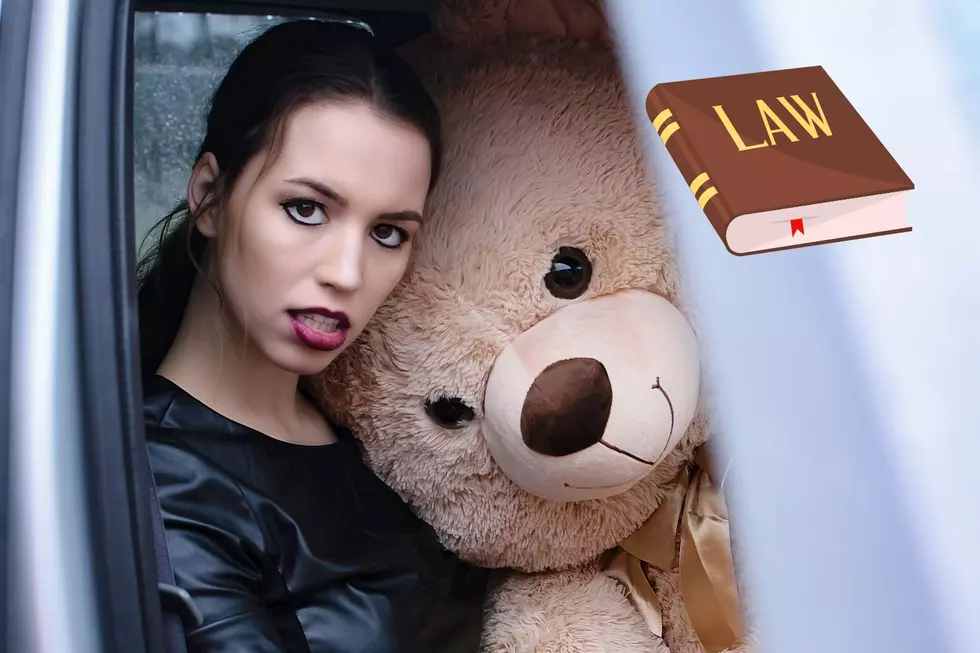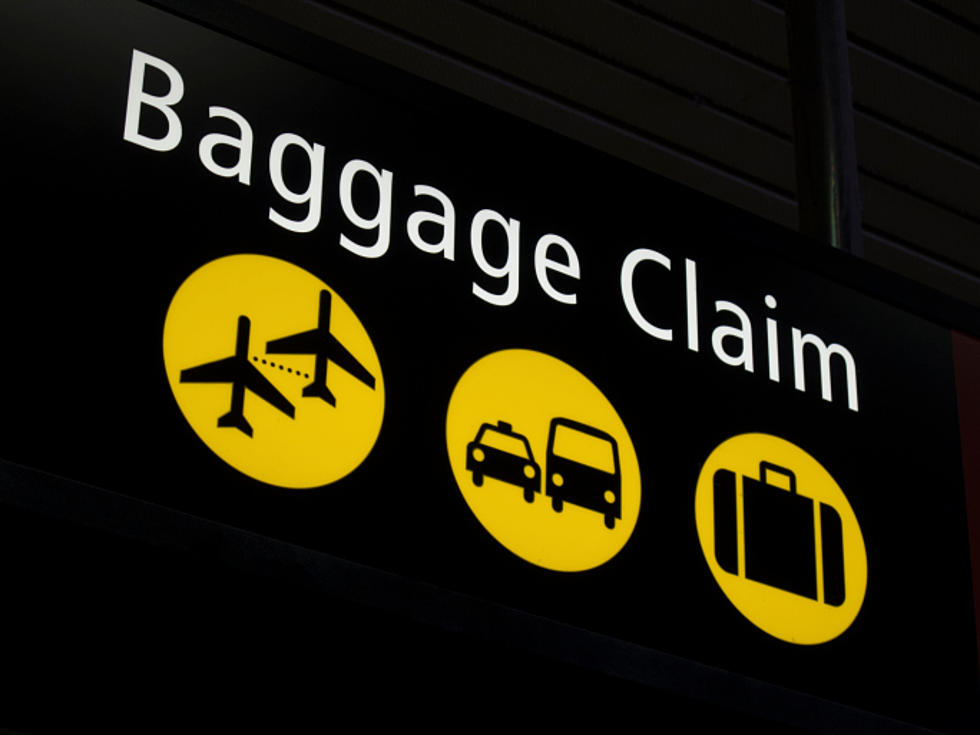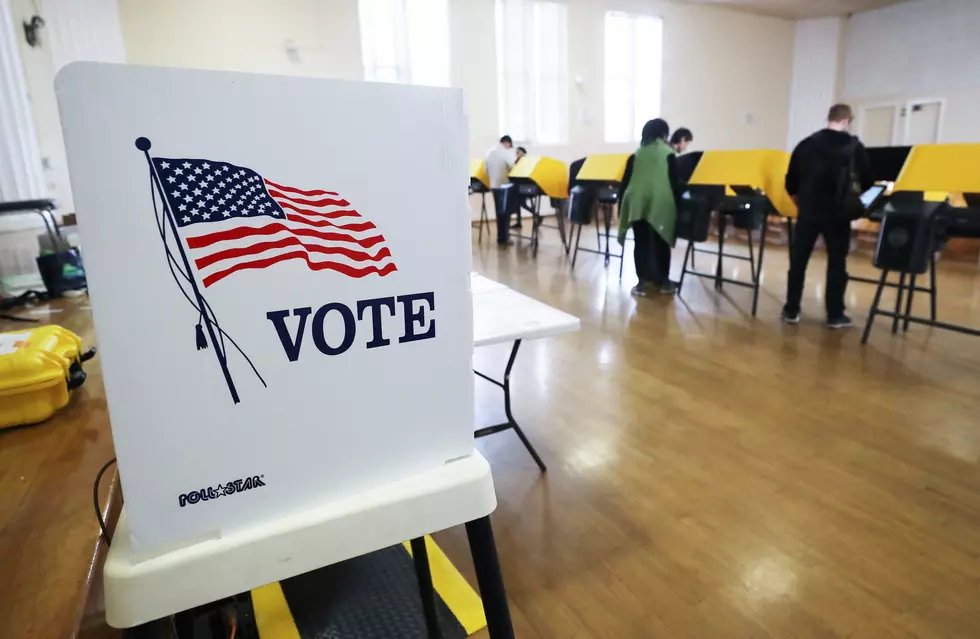
9 New Laws Will Taking Effect in Texas Sept. 1st
Texas will adopt new laws on September 1, and you're likely to be affected by at least one of them.
Some major laws have been changed due to the coronavirus pandemic and Winter Storm Uri, while others are related to guns, education, and medicinal marijuana.
Here are just a handful of laws set to take effect as we roll into September.
HB 1927 - Constitutional Carry
Texas residents over the age of 21 will now be able to carry handguns without a license.
Known as "constitutional carry," this law eliminates the requirement that individuals obtain a license (and undergo training and background checks as part of that process) to carry a handgun in public. However, federal law requires background checks when purchasing a firearm from a licensed dealer.
As long as Texans are not prohibited from possessing a firearm, they may carry pistols openly or concealed.
Texas does not require a license to carry long guns in public, including shotguns and rifles.
SB 8 - Anti-abortion legislation limits procedure to as early as 5 weeks
This new law, known as the "heartbeat bill," bans abortions when a fetal heartbeat can be detected, which can sometimes be as early as five weeks after a missed period.
Rape and incest victims are not exempt, so they must carry the pregnancy to term once a fetal heartbeat is detected.
Additionally, except for state and local government employees, any person in Texas can sue abortion providers or anyone they believe assisted a woman in obtaining an abortion. Providing transportation to a clinic could be part of that.
As part of the law, doctors are not allowed to perform abortions without first checking if a fetal heartbeat can be detected. The only exception to this rule is if a physician believes a medical emergency that makes abortion necessary.
HB 929 - Body-Worn Cameras
During investigations, police officers will now be required to wear their body cameras.
Former Dallas cop Amber Guyger, who currently serves a 10-year prison sentence for killing Botham Jean, was the inspiration for the law.
Previously, officers were permitted to turn off their cameras when in a "nonconfrontational" encounter with a person. However, officers must record any part of an investigation under the new law.
HB 1518 - Beer and Wine Sales on Sundays
On Sundays, Texans could not buy beer and wine until noon. The new law expands the hours of sale of beer and wine from 10 a.m. to Midnight.
Stores like grocers and gas stations will still be able to sell beer and wine from 7AM to midnight Monday through Friday, and 7AM to 1AM Saturday nights into Sunday morning.
HB 1239 - Churches Can’t Be Closed
While churches have robust protections under state and federal law, they are not necessarily guaranteed special treatment during a public health crisis or in other matters of public safety.
Gov. Abbott's executive order on March 19, 2020 limited indoor gatherings to no more than 10 people, and churches were not explicitly exempt. As of March 31, Abbott's orders exempted essential services, including churches, but some local jurisdictions, such as Harris County, continued to include churches in their general stay-at-home orders.
According to the new law, places of worship cannot be ordered closed by government agencies or public officials for any reason - including during a disaster.
HB 3979 - Critical Race Theory
Texas is now among only a few states that ban the teaching of critical race theory, or more acutely, how race and racism have impacted U.S. social structures.
Under the new law, Texas students are required to learn a specific, limited list of topics and documents. Many educators and education advocacy groups have opposed the bill, claiming that it limits honest conversations about race and racism in American society. In addition, teachers are forbidden from giving extra credit to students who participate in civic activities that include political activism.
HB 1535 - Medical Marijuana
As a result of this expanded law dealing with the compassionate use of medical marijuana, hundreds of thousands more Texans will have access to low-THC cannabis.
Patients who have posttraumatic stress disorder, cancer patients, and other medical conditions approved for certain research programs will be able to access medical marijuana, and doctors will prescribe low-THC cannabis to qualified patients.
Additionally, THC dosages are now restricted to 1% instead of .5%. The medical marijuana laws in Texas remain among the most restrictive in the country, but supporters have made progress every session since 2015 when the legislation first passed.
SB 4 - Star-Spangled Banner Protection Act
In recent years, the Star-Spangled Banner has become a subject of debate, with athletes kneeling in protest of police brutality and some teams choosing not to play the national anthem before games. However, the new law will require professional sports teams with contracts with the state to play the anthem before every game. It's believed this legislation was inspired by Mavericks owner Marc Cuban choosing not to play the national anthem before home games.
HB 9 - Blocking Emergency Vehicles
If protesters block emergency vehicles with audible sirens and visual signals, such as flashing lights, they will face felony charges. Previously, the offense was a Class B misdemeanor. Congress passed the bill after protesters blocked roadways during nationwide protests prompted by the murder of George Floyd.
HB 1024 - Alcohol To Go
Gov. Greg Abbott initially waived regulations allowing restaurant alcohol delivery on March 18 to support the hospitality industry during the Coronavirus pandemic.
The Legislature codified this change. As a result, Texas businesses can offer pickup and delivery of beer, wine, and mixed drinks with food orders.
Texas legislators took action following Winter Storm Uri to address issues with the power grid, which ERCOT put under the microscope following the storm. Senate Bill 2 changes the composition of the Electric Reliability Council of Texas, or ERCOT, board of directors and how its members are appointed. Senate Bill 3 will require power companies to upgrade their power plants and transmission lines to withstand more extreme weather conditions.
SB 968 - Vaccine Passports
Abbott signed the law in early June, and vaccination passports are now prohibited in the Lone Star State. Businesses cannot require customers to provide proof of vaccination. Otherwise, they violate the law. State contracts and grants will not be awarded to businesses that violate this ban.
More Could Be Coming
Texas' legislature is currently in a second special session called by Governor Abbott. The last special session failed to pass election laws due to many Democratic lawmakers leaving the state in protest.
The special session is prioritizing several initiatives, including those so-called "election integrity" bills. You can find a full list of what's on the agenda here.
10 Myths About Texas That Even Some Natives Believe
More From KKTX FM









